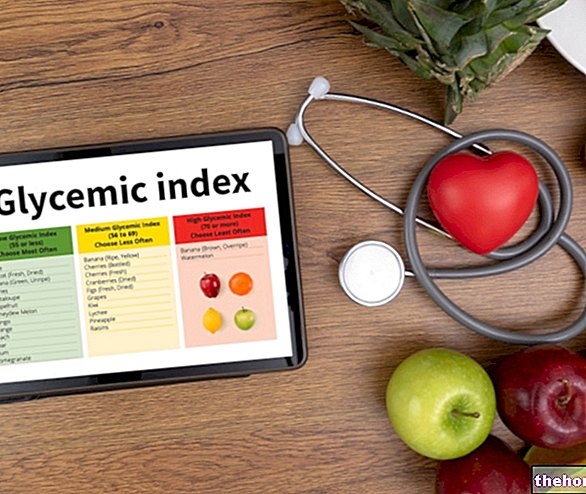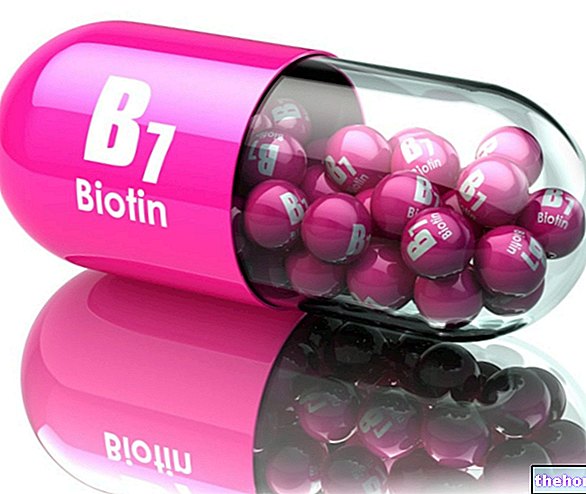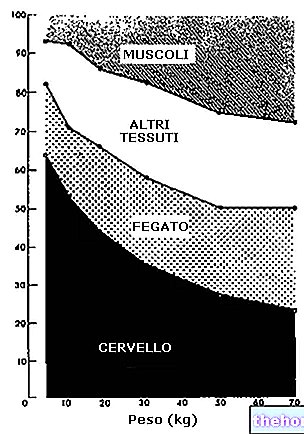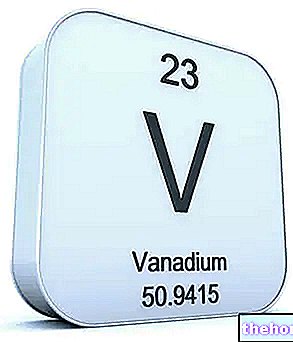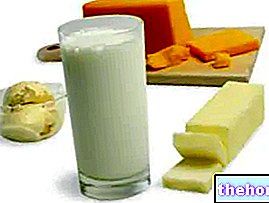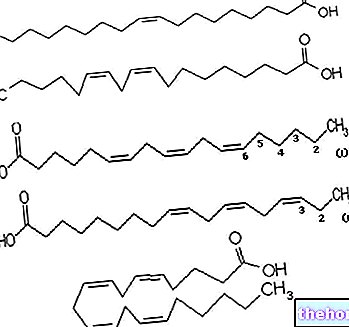Poor fats, accused of sins they do not have, innocent victims of a diet that discriminates against them, repudiates them and unjustly condemns them
For too long we have followed the advice of those who recommend limiting fat intake as much as possible.
We have spent too much money in vain buying "light" products in the hope that they would help us lose weight. The time has come to give these precious nutrients the dignity they deserve.
Fats and the Mediterranean diet
The Mediterranean diet has long been portrayed as the ideal diet, capable of guaranteeing well-being and vitality without making us gain weight. In reality, many of the principles contained therein are correct, while others in the light of new discoveries in the food sector are outdated or even counterproductive.

As often happens in these cases, the American government was forced to convey a strong message, exaggerated in some respects, but necessary. The simple advice to reduce the consumption of fat would probably have gone unnoticed and in any case would have been completely ineffective in rebalancing a diet traditionally too high in lipids. The message also had to be easily understandable (it is useless to explain to those who do not know what eicosanoids or essential fatty acids are).
The same thing happened in Italy with the Mediterranean diet. In an attempt to reduce the consumption of saturated fats, which is excessive even in our country, it was for a long time advised to limit its intake by favoring the typical foods of the Mediterranean basin (pasta, olive oil, vegetables and fruit).
The Italians were convinced, and unfortunately many still are, that pasta, bread and complex carbohydrates in general did not make you fat.
The results of these information campaigns are there for all to see. It is enough to look around for a while to realize that in recent years the number of overweight people has considerably increased.
Therefore, the excessive limitation of fats does not help to lose weight, on the contrary, in many cases it is one of the main causes that lead to overweight, as we will see in the next paragraph.
Good fats and bad fats?
From what has been said so far, it is clear that if they are not supported by more detailed explanations, the advice of nutritionists is not only useless but even misleading.
Specifically, citizens should be taught the concept of lipid quality.
Not all fats are in fact the same, some should be consumed in moderation, others reduced as much as possible, still others should be encouraged for the beneficial role they have on our body.
SATURATED FATTY ACIDS: they are found mainly in products of animal origin (eggs, milk and derivatives) but also in foods of vegetable origin (coconut and palm oil). These particular oils are widely used in industrial processing to improve the flavor of foods. Therefore, every day we consume a good amount of saturated fat "hidden" behind "harmless" snaks or sweets.
According to many doctors, an excess of saturated lipids in the diet would significantly increase the level of cholesterol in the blood, favoring the onset of cardiovascular diseases. In reality this is true only for some aspects, while for others it is now outdated.
Today, the most up-to-date professionals believe it is enough not to overdo the consumption of saturated fats, without depriving themselves of them or excessively limiting them. The risk of developing cardiovascular diseases derives, in fact, not only from a genetic predisposition, but also from the lifestyle of the subject (smoking, alcohol, lack of physical activity).
As for the diet, it is more important to take the right amount of essential fatty acids and the right caloric intake than to limit the amount of cholesterol introduced with food (just think that 80-90% of total cholesterol is produced independently by our body).
MONOUNSATURATED FATTY ACIDS: they are mainly present in olive oil and dried fruit. They can be consumed with some freedom as they have a very low atherogenic power. Compared to saturated fats they are certainly healthier but also more easily digestible.
ESSENTIAL FATTY ACIDS (AGE): they are contained in fish, nuts, sunflower oil, corn and some plant extracts. They are called essential because they cannot be synthesized by the human body. They are the precursors of prostaglandins, thromboxanes and leukotrienes, substances that mediate the inflammatory response and intervene in the immune and cardiovascular systems.
They are generally known as fatty acids capable of decreasing bad cholesterol in favor of good, but this is a limiting judgment as their positive functions are innumerable.
CONTINUE: Fat requirement and optimal dietary intake "

